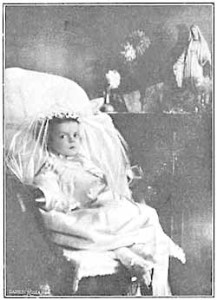Truly an extraordinary ministry: I am an EMHC and I am honored to be one
I wish to clarify something right away. I am NOT a Eucharistic Minister. I am an Extraordinary Minister of Holy Communion (EMHC). ‘Extraordinary Minister of Holy Communion” is the proper term for the people involved in this ministry. The term “Eucharist” is never to be in their title. That term is reserved for the priest alone (see Redemptionis Sacramentum).
I have been involved in many ministries over the years and have been an EMHC for 23 years. For me, nothing can compare to being an EMHC. It is all about Jesus, the person receiving Jesus, and you being the one who has brought them together. It does not get any better than that.
I rarely miss a visit to my homebound friends. As of this writing, I visit nine every Sunday. Five of them are in their nineties. Honestly, it makes my day. Ironically, it makes their day too, (and sometimeS their week) because they hardly see anyone during the week except home health aides and folks like that. All I come with is a smile, a church bulletin, maybe a prayer card and, of course, their BEST FRIEND.
I have a journaling book, and in the back, I have compiled names of people I have brought Holy Communion to over the years. I want to share a bit about a few of these folks with you. These are Catholic people who have lived their Catholic lives to the best of their ability. Many of them were children during the Great Depression and lived through World War II and into the 21st century — like my friend George B.
George was in the U.S. Navy and stationed in London in 1940 during the Blitzkrieg. He survived that, came home and wound up at Pearl Harbor. He was there on December 7, 1941, when the Japanese attacked. He and a Marine corporal manned a 50-caliber machine gun and shot down two Japanese Zeroes. The two of them then proceeded to pull men out of the burning water near the USS Arizona. After the war, he was in the circus for more than 20 years. George died several years ago at the age of 97. I loved his stories. He was a walking history book, and he would get veryanimated when he was telling you about his adventures. I brought him Communion every Sunday for more than two years. What an honor that was.
There was Anne S. She was 90 and would be dressed to the “T” every Sunday when I arrived. She would ask, “Why does God keep me here, Larry?”
“Anne,” I would say. “He needs Prayer Warriors. That’s what you are, and that’s why you are here. There are many souls in Purgatory. They need your help.”
She would always smile and point to her rosary and her prayer books on the table next to her. She would point to them and say, “Yes, I know. I do keep busy.” Recruiting “prayer warriors” is an important part of what I do. Anne has been gone for five years.
And my little pal, Scotty Walker. He was a St. Jude baby because of a tumor on his brain stem. That was in 1977 when he was only two years old. When he was 25, he was only 4 feet, 4 inches tall. He started his own lawn service when he was about 17. Scotty wore a big straw hat, and his nose would be just above the lawn-mower handle as he pushed it along. At the same time, he was studying for his GED. He worked his tail off until he could not do so any longer. I brought him Communion every Sunday during the last two years of his life. He died in 2002 when he was 27.
I have been blessed to be part of this ministry. Seven people have received their Viaticum from me. It was not planned that way — it just happened. I pray to each of them all the time. I have on my list over 40 people who have passed on, including both my wives (one died in 2003 and the other in 2017).
I would suggest you look into being part of this ministry. You get to leave the church with Jesus in your pocket and then just you and He get to go visiting His homebound or hospitalized people. It is a beautiful thing.
Copyright 2018 Larry Peterson


 So we come back to the little shepherd boy. I hear his drums, “pa rum pa pum pum” a physical declaration of his heart beating with love for the king, a testimony to all that is required of us–offering our own hearts without reserve.
So we come back to the little shepherd boy. I hear his drums, “pa rum pa pum pum” a physical declaration of his heart beating with love for the king, a testimony to all that is required of us–offering our own hearts without reserve. Advent and Christmas were always bright and happy times in my childhood home. While focus was on preparing for the coming of Christ, mixed in with that anticipation was the fun of decorating. Red was everywhere and in every room. My mother made sure our home reflected the joy heralded by the angels of peace on earth and goodwill to all men, with the manger scene a focal point. We had red plaid table cloths in the dining room and playful elves hanging from every conceivable perch. I came to love the significance of all these bright red and green decorating traditions.
Advent and Christmas were always bright and happy times in my childhood home. While focus was on preparing for the coming of Christ, mixed in with that anticipation was the fun of decorating. Red was everywhere and in every room. My mother made sure our home reflected the joy heralded by the angels of peace on earth and goodwill to all men, with the manger scene a focal point. We had red plaid table cloths in the dining room and playful elves hanging from every conceivable perch. I came to love the significance of all these bright red and green decorating traditions.
![IMG_1225-L[1]](http://blog.catholicwritersguild.com/wp-content/uploads/2017/10/IMG_1225-L1-300x225.jpg)
![IMG_5706-L[1]](http://blog.catholicwritersguild.com/wp-content/uploads/2017/10/IMG_5706-L1-300x225.jpg)
![IMG_5766-L[1]](http://blog.catholicwritersguild.com/wp-content/uploads/2017/10/IMG_5766-L1-300x225.jpg)


